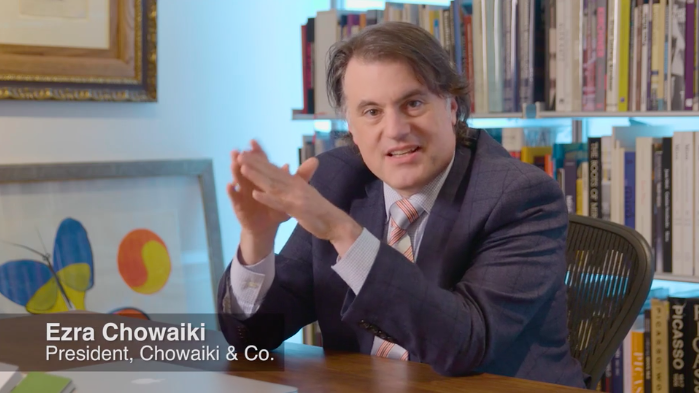-
Grossman LLP Defeats Efforts to Dismiss Collector’s Replevin Claims Against London Dealers
08/01/2019
 More than a year has passed since New York dealer Ezra Chowaiki pled guilty to federal charges related to his misconduct in cheating numerous clients in fraudulent art deals. But the legal fallout continues. Many of his victims and business associates have asserted claims (for money or art) in connection with the bankruptcy of his gallery, Chowaiki & Co., as well as in federal forfeiture proceedings that allow claimants to assert their rights to artworks ordered forfeited to the government as part of Chowaiki’s guilty plea.
More than a year has passed since New York dealer Ezra Chowaiki pled guilty to federal charges related to his misconduct in cheating numerous clients in fraudulent art deals. But the legal fallout continues. Many of his victims and business associates have asserted claims (for money or art) in connection with the bankruptcy of his gallery, Chowaiki & Co., as well as in federal forfeiture proceedings that allow claimants to assert their rights to artworks ordered forfeited to the government as part of Chowaiki’s guilty plea.
Grossman LLP represents several of Chowaiki’s victims. In late 2018, Grossman LLP initiated litigation, on behalf of one such collector against a group of London dealers, seeking the return of a painting by Marc Chagall, Bouquet de Giroflees. The owner bought the work from Chowaiki, but claims that Chowaiki then fraudulently induced him to consign it back to Chowaiki. According to the complaint, Chowaiki then began playing fast and loose with the painting, consigning it to others, repeatedly moving it without consent, and even taking out a loan to pay his own debts, using the work as collateral. Chowaiki then purported to sell shares of the work to a group of London dealers, without the owner’s knowledge or his required consent, and without paying the owner the sale proceed.
The lawsuit that Grossman LLP filed in New York state court, seeks the return of the work from the London dealers; among other things, it asserts that the dealers were not good-faith purchasers of the work, where they expressed misgivings about Chowaiki’s honesty and ignored multiple “red flags” that should have alerted them to the fact that Chowaiki was dealing with the work improperly. The defendants—Alon Zakaim, David Breuer-Weil, and Hugh Gibson, and their respective galleries, Alon Zakaim Fine Art Limited, Galerie B. Weil Limited, and Thomas Gibson Fine Art Limited—moved to dismiss Silver’s complaint on multiple grounds.
After oral argument, the Court rejected the dealers’ arguments, and will allow the case to move forward. The Court held that the defendants are subject to personal jurisdiction in New York, notwithstanding that they are based in London. The Court also held that the Complaint had pleaded sufficient “red flags” in the transaction, such that the Court could not conclude at this early stage that the dealers should be treated as good-faith “buyers in the ordinary course.”
The decision is an important one because it reinforces that foreign dealers can be subject to litigation in the United States under proper circumstances, including where many aspects of the transaction at issue took place here. And it also reminds the art world about the importance of basic diligence and scrutiny of transactions, especially where there are indications that something may be amiss. Here, the defendant dealers seek to invoke the affirmative defense of entrustment under the New York Uniform Commercial Code (see here for the relevant statute), providing that when property is entrusted to a merchant who deals in goods of that kind, the merchant has the power to transfer the entruster’s rights to a buyer in the ordinary course of business. But to qualify for that defense, the dealers must show that they acted in good faith and in keeping with reasonable commercial standards of fair dealing in the art trade. And that is by no means clear here, where these dealers allegedly proceeded despite their own misgivings about Chowaiki, and where the plaintiff claims that they failed to perform the basic diligence step of searching for liens on the work (a step which would have revealed Chowaiki’s misconduct in taking out a loan for his own benefit using as collateral an artwork he did not own).
Art Law Blog
